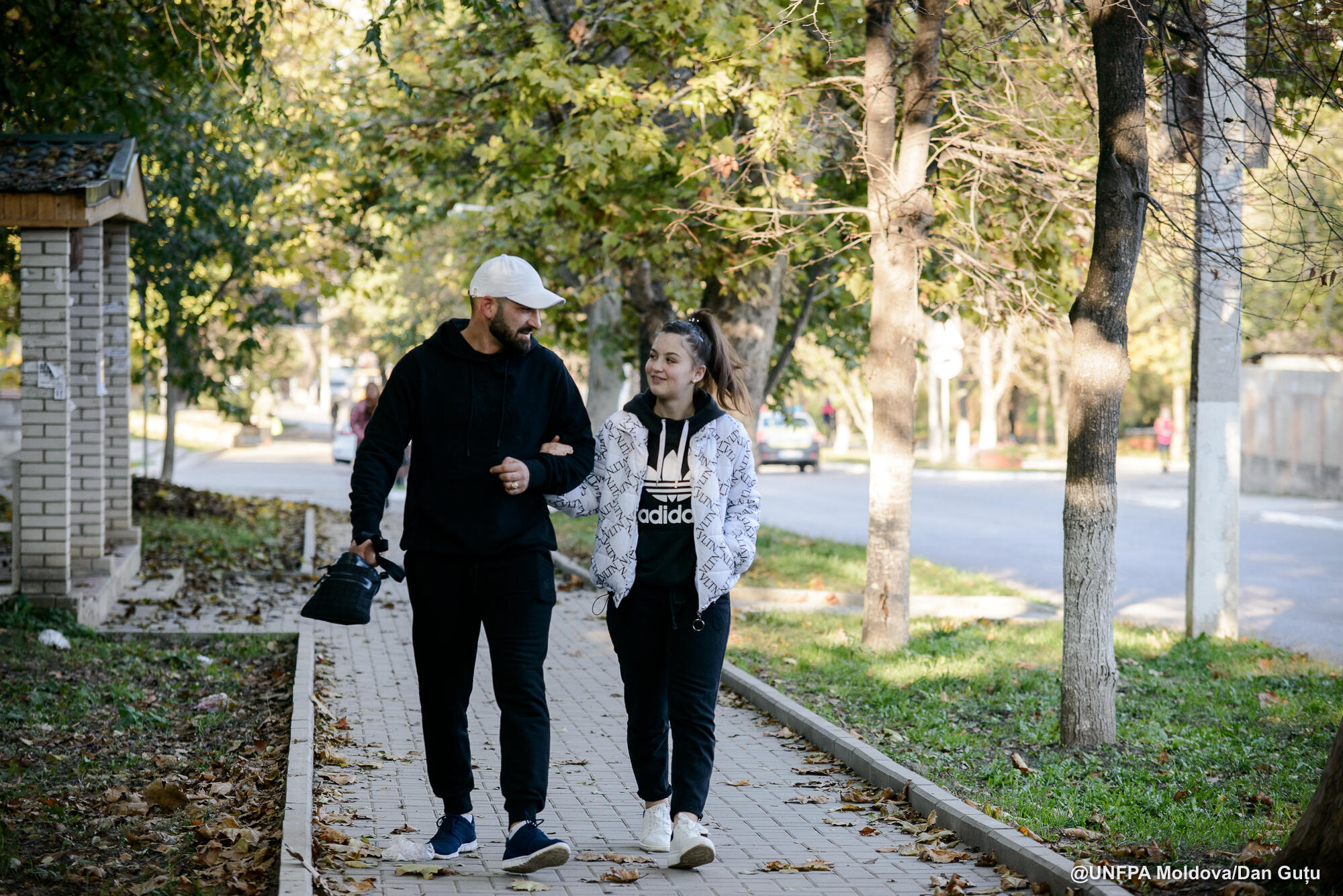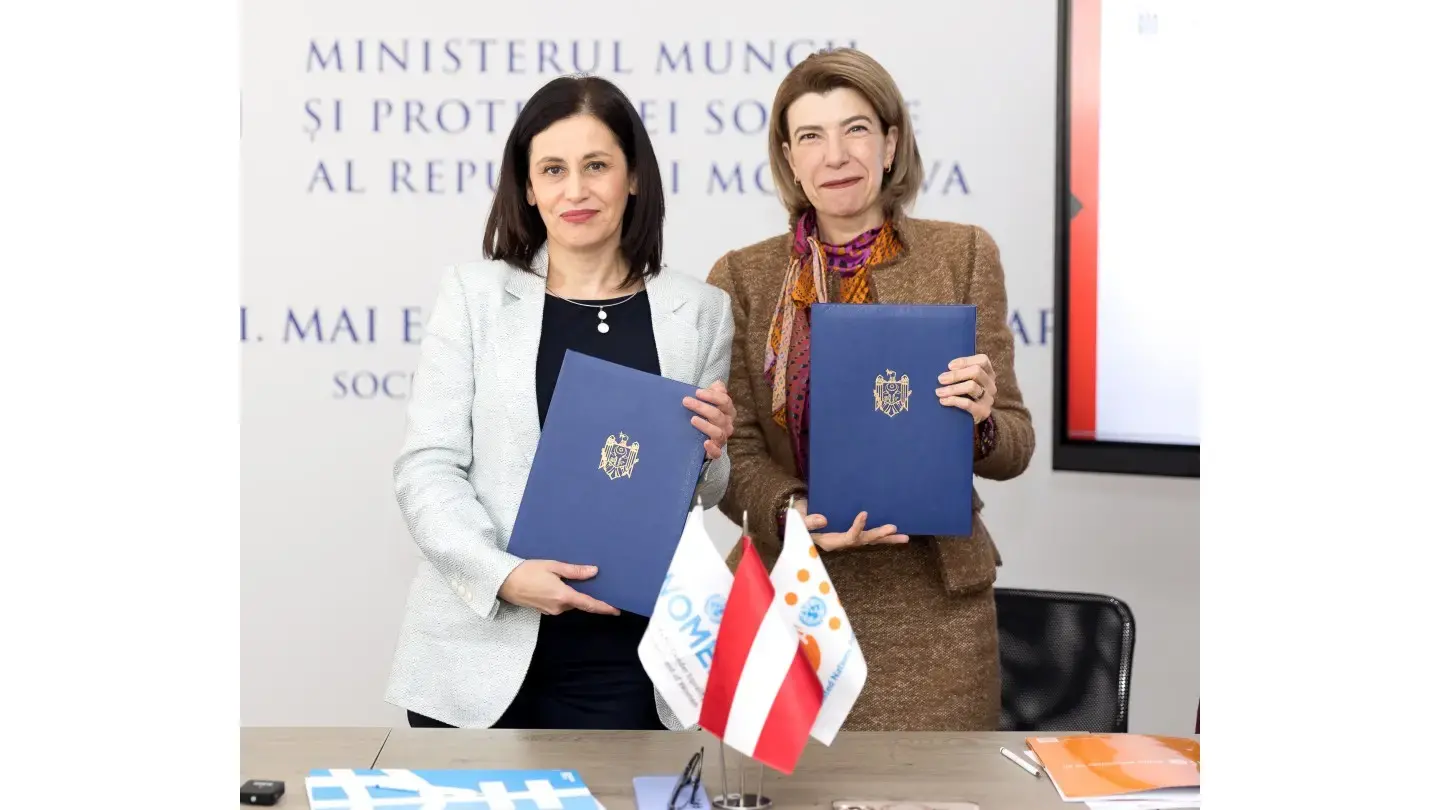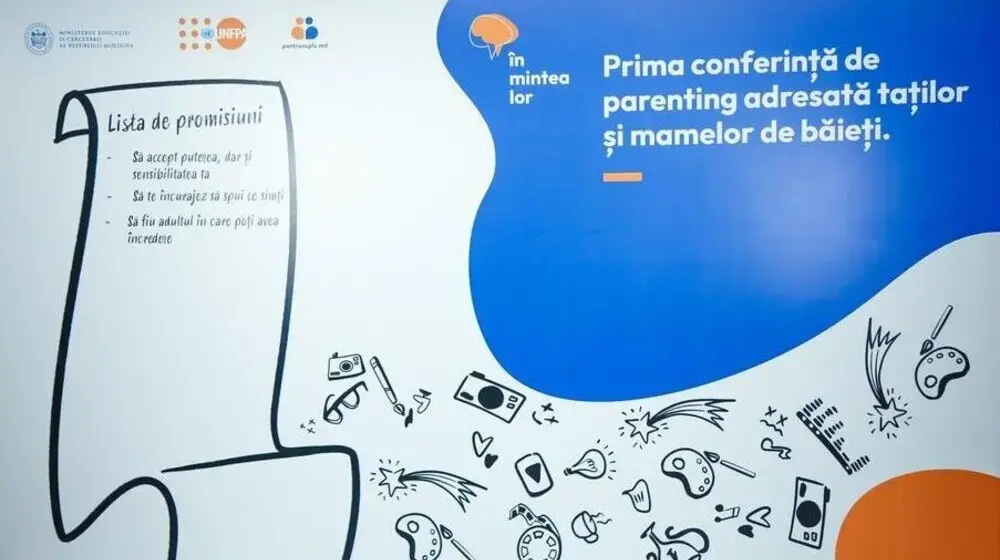Alexandru Trohin thinks that to be a father is more than conceiving a child. He believes that to be a father means to be always near, to participate actively in the child’s education and to be aware of his/her needs at particular development stages.
Alexandru and his family live in Straseni. Together with his wife Diana, they are raising and educating Alexandra, a 12-years-old teenager. Alexandru came in Alexandra’s life when she was four. He is not her biologic father, but this fact does not diminish Alexandru’s role as a father:
‘A father is the one who raises, not the one who conceived the child. It was my choice to be her father and this is an advantage. We built a father-daughter relationship in a conscious manner. We often discuss, watch movies, pound nails, do sport. I encourage her to talk to me about transformations related to age and she knows that she can discuss everything with me.’
Alexandru is a wrestling trainer. He has a gym in Straseni, attended by over 100 children and adolescents. Due to the fact that this work takes all his time, Alexandru encouraged Alexandra to practice wrestling in order to spent more time together. He trains her and is sure she can became a champion.
‘There is no sport only for girls or only for boys. A girl can fight very well and can achieve performances. I have been training Alexandra for three years. She must know how to defend herself. She feels more confident and equal in opportunities while wearing her boxing gloves and fighting side by side with boys in the gym’, Alexandru added.
There are no prohibited topics in Trohin family. The father knows about the transformations related to age, and Alexandra is open to share with him these aspects of her life. Together they are trying to set social behaviours, so that Alexandra could develop in a healthy and safe way.
‘I consider it is normal for a father to discuss with his daughter about menstruation or relations with boys. I am very open if it is Alexandra’s choice to discuss this topics with me. The first time I saw Alexandra dancing with a boy I was swamped by emotions. I realised it was the time to discuss about topics that could help her adopt a healthy lifestyle. I started to pay more attention to the transformations she is going through. I am always there to share her emotions and fears’, said Alexandru.
Like her father, Alexandra sees no reason to discuss about particular situations separately with her mother or father. In her opinion, they both should know about her problems and needs.
‘If you are a girl it does not mean you can discuss and do everything only with your mother. I learn a lot from my father. He taught me there is no work only for women or only for men. There is no sport only for girls or only for boys. With my father I’ve learned to pound a nail and to use a shovel. I will talk to him about my relationships with boys because I am sure he will help me to have a healthy attitude about it, and because I can trust him’, shares Alexandra.
Alexandru’s friends criticised him often for his deep involvement in Alexandra’s education, because the mother should deal with children’s education, not the father. There is a range of stereotypes in the society, according to which the roles of a man and a woman in children’s education are clearly defined, and any deviation from these pre-established rules is seen as a men’s weakness. Alexandru tries to combat these stereotypes and to encourage his fellows to engage as much as him.
‘Since we were children we saw families where the mother was at the kitchen, and the father was at the head of the table. Then I thought to myself that in my family everything would be different. I do not ask to be cooked for or to be served. I can also cook’ Alexandru added.
He also mentioned this during the focus group discussions, organized in the framework of the ‘EU 4 Gender Equality: Together Against Gender Stereotypes and Gender-Based Violence’ regional programme, funded by the European Union and implemented by UN Women and UNFPA Moldova. Alexandru welcomed the idea of establishing a Fathers’ Club that would encourage more fathers to engage in household chores and children’s education.
‘Thus we will get to know each other and to share problems and solutions. I think more men will change their view towards the engagement in household chores and will no longer take into account the stereotypes related to gender roles’, added Alexandru.
***
UNFPA Moldova, supported by the Child Rights Information Center implementing partner, will establish eight pilot clubs in Straseni and Falesti, dedicated to supporting men and the equal sharing of household and family responsibilities. The activity is part of ‘EU 4 Gender Equality: Together Against Gender Stereotypes and Gender-Based Violence’ programme, funded by the European Union and implemented jointly by UN Women and UNFPA.





